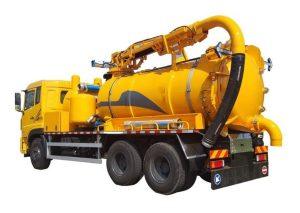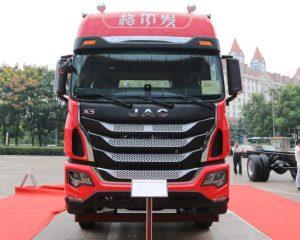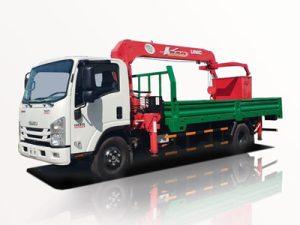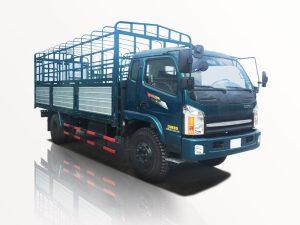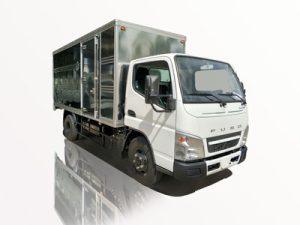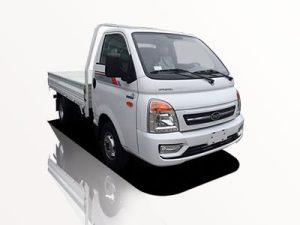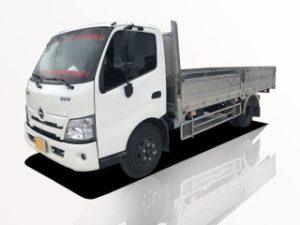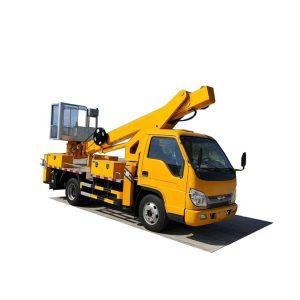Monday to Saturday - 8:00 -17:30
Everything You Need to Know About Trash Truck Trucks
Trash truck trucks are a fundamental part of urban life, playing a crucial role in waste management and environmental sustainability. This comprehensive guide delves into the different types, functionalities, maintenance tips, and the future of these essential vehicles. Whether you are a waste management professional, a city planner, or simply interested in understanding the intricacies of trash truck trucks, this article will provide invaluable insights.
What is a Trash Truck Truck?
A trash truck truck, often referred to simply as a garbage truck, is a specialized vehicle designed for the collection and transportation of waste materials. These trucks come in various shapes and sizes, suited for different waste management needs. From small compactors for residential areas to larger vehicles for commercial sites, the design and functionality of these trucks are tailored to maximize efficiency and reduce environmental impact.
Types of Trash Truck Trucks
Understanding the different types of trash truck trucks is crucial for efficient waste management. Below are some of the most common types:
1. Front Loaders
Front loader trucks are equipped with a large bin at the front that lifts containers to empty them directly into the truck. These trucks are ideal for commercial waste collection, particularly from businesses that generate a lot of waste.
2. Rear Loaders
Rear loader trucks have a more traditional design, where waste is collected from the rear. This design allows for easy access in residential areas, making it a popular choice for household waste collection.
3. Side Loaders
These trucks utilize a robotic arm to pick up bins from the side. Side loaders are increasingly popular due to their efficiency and reduced need for manual labor.
4. Roll-off Trucks
Roll-off trucks are designed to transport large containers for construction or heavy-duty waste. They are known for their ability to handle different types of waste while ensuring safe transportation.
5. Vacuum Trucks
Vacuum trucks are equipped with powerful suction systems to collect liquid waste or sludge. They are essential in managing hazardous waste and ensuring that cleaning operations are carried out efficiently.
How Trash Truck Trucks Work
The operational mechanics of a trash truck truck plays a significant role in its efficiency and effectiveness. Below, we’ll break down how these trucks function:
Loading Mechanism
The loading mechanism varies depending on the type of truck. Rear loaders typically use a manual or hydraulic lift system, while front and side loaders utilize advanced lifting mechanisms to ensure that bins are emptied swiftly and effectively.
Compaction System
Most trash truck trucks employ a compaction system that compresses waste to maximize space. This feature allows trucks to carry more waste per trip, reducing the number of trips needed and saving on fuel costs.
Safety Features
Modern trash truck trucks are equipped with several safety features, including:
- Rear-view cameras
- Automatic braking systems
- Strobe lights for visibility
- Emergency stop buttons
Maintenance Tips for Trash Truck Trucks
Regular maintenance is crucial for ensuring the longevity and efficiency of trash truck trucks. Here are some essential tips:
1. Routine Inspections
Conduct regular inspections to identify wear and tear. Check the brakes, tires, and hydraulic systems to ensure everything is functioning properly.
2. Cleaning
Clean the truck regularly to prevent odor buildup and ensure hygiene. A clean truck is not only healthier for waste management but also presents a better image to the public.
3. Lubrication
Proper lubrication of moving parts is vital for the smooth functioning of the truck. Invest in high-quality lubricants to maintain optimal performance.
4. Tire Care
Regularly check tire inflation and tread depth. Tires are critical for safety and efficiency, so maintaining them can prevent accidents and reduce fuel consumption.
5. Training for Operators
Ensure that all operators are adequately trained in the optimal use and maintenance of the trucks. This will enhance safety and efficiency in operations.
The Role of Trash Truck Trucks in Waste Management
Trash truck trucks play a pivotal role in waste management systems across the world. Their functions extend beyond merely transporting waste:
1. Environmental Impact
Proper waste collection helps reduce litter and pollution in urban areas. By efficiently managing waste, trash truck trucks contribute to cleaner cities and healthier environments.
2. Recycling Initiatives
Many trash truck trucks are now equipped with separate compartments for recyclables, promoting recycling efforts and aiding in waste reduction.
3. Public Health
Timely waste removal prevents the accumulation of hazardous materials and pests, promoting public health and safety. Regular collection services reduce risks associated with waste exposure.
4. Community Engagement
Cities often engage communities in waste management initiatives. Trash truck trucks serve as a visual reminder of these programs, raising awareness and encouraging participation.
Future Trends in Trash Truck Technology
The waste management industry is rapidly evolving, with trash truck trucks at the forefront of technological advancements. Here are some trends to watch for:
1. Electric and Hybrid Trucks
As cities aim to reduce carbon footprints, electric and hybrid trash truck trucks are gaining popularity. These vehicles produce less pollution and often have lower operating costs.
2. Automation and Robotics
With advancements in automation, we might see more robotic arms and automated systems for loading and unloading. This will enhance efficiency and reduce physical strain on operators.
3. GPS and Fleet Management Systems
Integrating GPS technology helps optimize routes, reducing fuel consumption and improving collection efficiency. Fleet management systems allow for better tracking and maintenance scheduling.
4. Smart Waste Management Solutions
Innovations such as smart bins that notify collection services when full are on the rise. These solutions enhance waste management efficiency and prevent overflow incidents.
Practical Examples of Effective Trash Truck Truck Usage
Learning from successful case studies can provide insights into effective waste management. Below are a few practical examples:
Case Study 1: The City of San Francisco
San Francisco has implemented a robust waste management program that utilizes a fleet of high-capacity trash truck trucks. This program emphasizes recycling and composting initiatives, significantly reducing landfill waste.
Case Study 2: New York City’s Automated Side Loaders
New York City has introduced automated side loader trucks to streamline waste collection. These trucks have resulted in faster collection times and reduced labor costs while maintaining high safety standards.
Case Study 3: A European City’s Electric Fleet
A city in Europe has transitioned its entire trash truck fleet to electric vehicles. This initiative has led to improved air quality and reduced noise pollution, enhancing the urban environment.
Frequently Asked Questions (FAQ)
1. How often should trash truck trucks collect waste in a residential area?
The frequency of waste collection can vary by municipality but generally occurs once or twice a week, depending on the volume of waste produced.
2. What should I do if my trash is not collected on schedule?
If your trash has not been collected, check with your local waste management service for any delays or issues. It may also help to report the missed collection online or by phone.
3. Are trash truck trucks environmentally friendly?
Many modern trash truck trucks are designed with environmental factors in mind, including improved fuel efficiency and features intended to promote recycling and waste diversion.
4. What happens to the waste collected by trash truck trucks?
The waste is typically taken to a transfer station or landfill, where it is sorted, recycled, or processed for disposal. Some materials are sent to recycling facilities to be reused.
5. Can I put hazardous waste in my regular trash?
No, hazardous waste should not be placed in regular trash. Most municipalities have specific guidelines for the disposal of hazardous materials, often requiring separate collection services.
6. How are trash truck trucks powered?
Traditional trash truck trucks are primarily powered by diesel engines, while newer models may use electric batteries or hybrid systems to reduce environmental impact.


